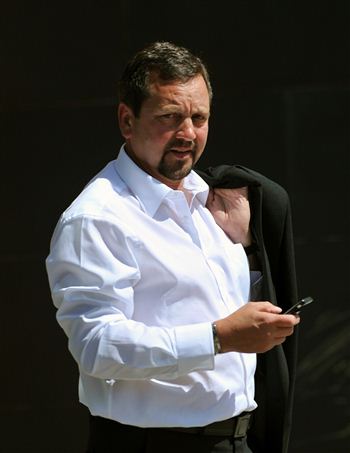A SCOTS paramedic refused to answer two 999 calls in the same evening resulting in delays in treatment to two vulnerable pensioners.
William Munro, from Glasgow, was working in the city’s Southside area on April 24 in 2006 when he is alleged to have refused to answer the 999 emergencies.

The first patient was an 82 year old woman who was experiencing breathing difficulty.
The second emergency he refused to attend involved a 70 year old man with chest pains.
Knife
Mr Munro, who was working alone that evening, blames Post Traumatic Stress for his behaviour after having a knife pulled on him twice in the preceding six months.
He appeared in person in front of a three man conduct and competence committee of the Health Professions Council in Edinburgh.
The panel heard evidence from two Scottish Ambulance Service despatch operators who were on duty that evening. The hearing also heard the two radio calls made from the operators to Mr Munro in which he refused to attend both emergencies.
In the second Mr Munro could be clearly heard arguing with operator Kate Anderson and accusing her of “shafting him”.
Problems arose during the evening of April 24 in 2006 when Mr Munro’s partner took ill and went home early.
The emergency despatch team were unaware Mr Munro was left working alone and tried to send him on two emergency calls which usually require a two-man paramedic team.
But both operators told the panel that even though he was working single handed he should have still attended the calls because they were “high priority and non violent”.
Operator Francois Crawford also claimed Mr Munro would regularly question jobs handed out to him which she admitted put the operators “under pressure”.
She said: “He would sometimes ask if he was the closest to the call.
“Granted there are certain calls that are unsuitable for a single manned ambulance to attend, but we usually look for the nearest response teams to attend.
Violence
“Even though his partner called in sick I would still have called him because it was a high priority call.”
She added: “I was quite taken aback when he refused the call and there was a six minute delay when he refused the call.
“There was no concern of violence with the call.”
Kate Anderson, the second despatch operator, agreed Mr Munro consistently questioned jobs he was required to attend.
She also spoke of having a “difficult professional relationship” with the paramedic because he thought she was “victimising him” in giving him more calls that other medical staff.
She said: “The only reason not to send a single-man vehicle is if the call involves violence or alcohol.
“We had a difficult relationship and I don’t think he trusted me.”
She told today’s hearing that when the call came in to attend to the 70-year-old man Mr Munro was the only A&E vehicle available.
She said: “Because it was a category A call it was appropriate for a quick response before a two man crew could arrive on the scene.
“If he had taken the call he would have been the first to arrive and give assistance.”
The panel then heard an actual recording of the call between Mr Munro and Miss Anderson in which the pair became involved in a heated debate.
The operator was heared ending the call as a result of Mr Munro’s attitude. She subsequently wrote a letter of complaint about him and gave it to her line manager.
The Glaswegian paramedic – who had 10 years service – now cites Post Traumatic Stress Disorder for his refusal that evening after attending two calls previously where the patients were carrying weapons.
Following his refusal to answer the 999 calls he was signed off work with a stress related illness.
On his return to work he was immediately suspended.
The tribunal is scheduled to continue tomorrow (tues).